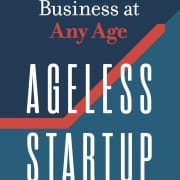What do you do when workplace ‘change’ happens?
For most people, ‘change’ is a mixture of what was, what used to be, what is present, what I’m being faced with now, what I believe the future holds, and what I have to change to face that future.
In short, how does this change affect me, my family, my lifestyle, and my position?
That’s a hell of a lot to think about, and that’s why change is so perplexing, so resisted, and often so fought against.
The answer to this age-old problem was discovered more than a thousand years ago and has been hidden. When Socrates said, “The secret of change is to focus all of your energy, not on fighting the old, but on building the new” he was giving you (and me) the wisdom of his ages, and a thousand years later it is still wisdom of our ages.
SOCRATES REALITY INTERPRETATION: The more you can concentrate your thoughts and actions on what will be tomorrow, the easier it will be for you to accept today, adapt to today, and the less likely you are to dwell on what was.
GITOMER INTERPRETATION: Add ‘forward’ to the word ‘change’ and when something changes, think, CHANGE FORWARD.
Known as ‘drinking fountain conversation’ or ‘pity parties,’ many people, not you of course, spend 74% or more of their time griping, whining, blaming, and lamenting any sort of change. None of these elements will productively move you forward as a person, and all of these elements will keep your mind closed to what your new potential or opportunity might be.
Just so we’re clear, there are 3 predominant types of change to deal with:
- Business or career change – which could also affect revenue.
- Family change – both positive and negative. We have a new child. I’m getting a divorce. My mother died. I’m getting married.
- Personal change – which can be affected by business and family changes, but can also be an issue relating to neither. Think: health and finances.
In order to effectively deal with any change in your life, I recommend that you take a different perspective on looking at it. Mine has always been to look at the circumstance and call it opportunity rather than call it change. That automatically makes you look towards the future. That automatically makes you look at what could be positive. And that automatically, points you in a direction of forward to what’s next, rather than backward to what was. In other words: Change forward.
When I say ‘opportunity’ you immediately think of something good, and subliminally in your mind, you might think, “How can I best take advantage of this opportunity?” rather than thinking, “oh crap the sky has fallen.”
AUTHOR’S NOTE: Having a five-year-old child in my life has awakened me to kid’s movies and their lessons. I recommend that each of you go out and buy or rent the movie Chicken Little. It’s a great lesson and will help you come to the conclusion that the sky is not falling. (I only watch kids movies now. Big lessons.)
The next action is for you to identify what the opportunity is, in writing. When you write things down, clarity almost immediately occurs. Writing down what happened will help you understand why it happened and no matter if that why was good or bad, it is now the new reality. Once you’ve identified the history, you have to list at least a dozen good things that can happen as a result of it. The first few will be hard. Especially if there’s any anger or fear attached to your change.
Identifying the opportunities will begin to calm you down and help you realize that with a combination of hope, attitude, and hard work, things will get better.
They did for me. I gave myself permission to move on and move forward. No matter what the change is, keep your eyes and mind open to the opportunity, and keep the faith in yourself.
Don’t fear change, change forward.
Reprinted with permission from Jeffrey H. Gitomer and Buy Gitomer.
About the Author












Leave a Reply
Want to join the discussion?Feel free to contribute!